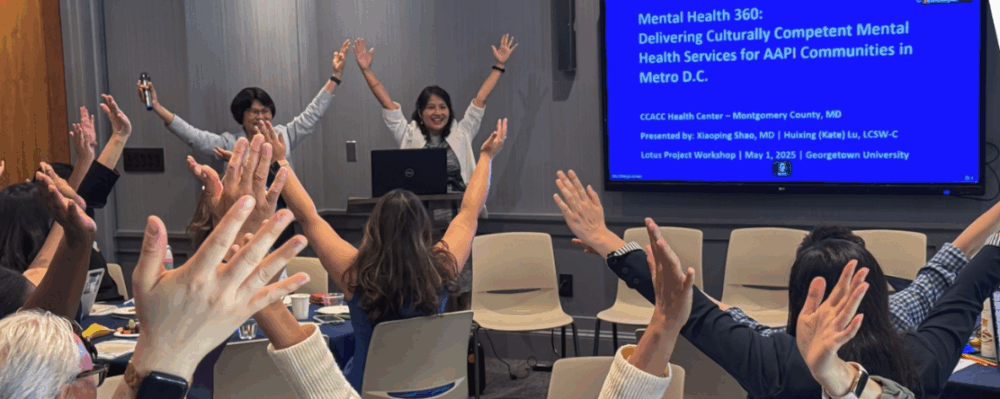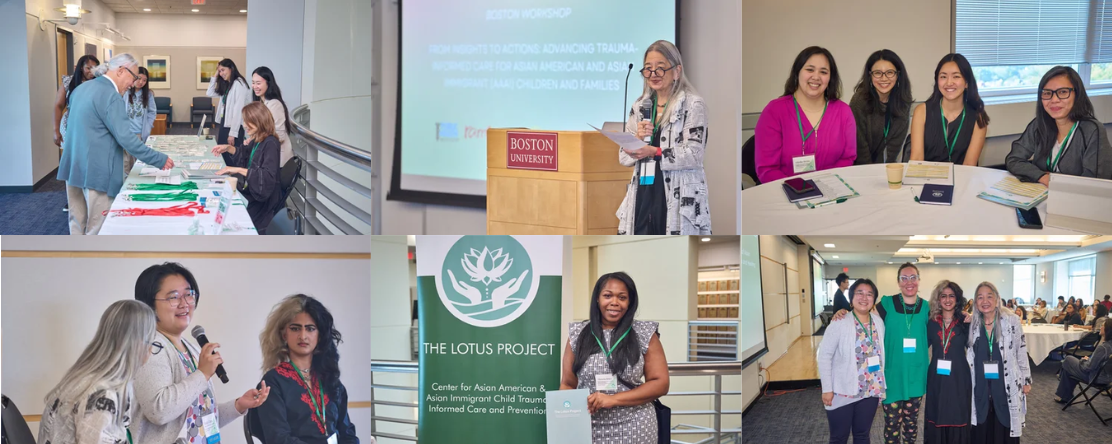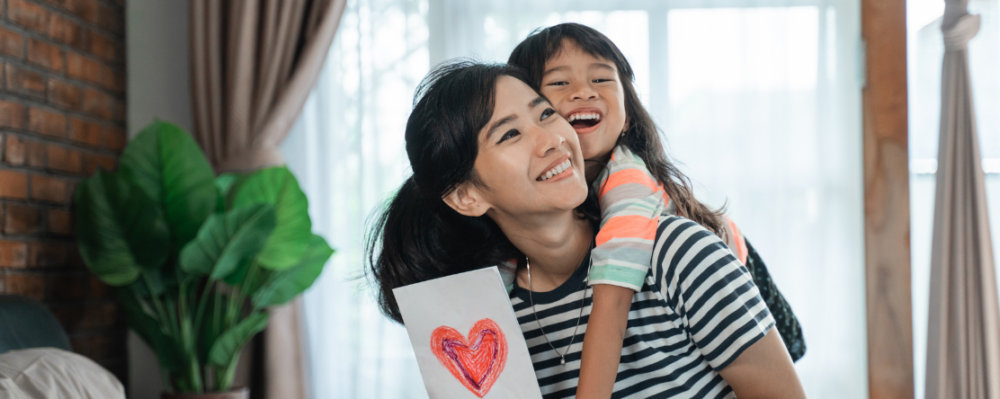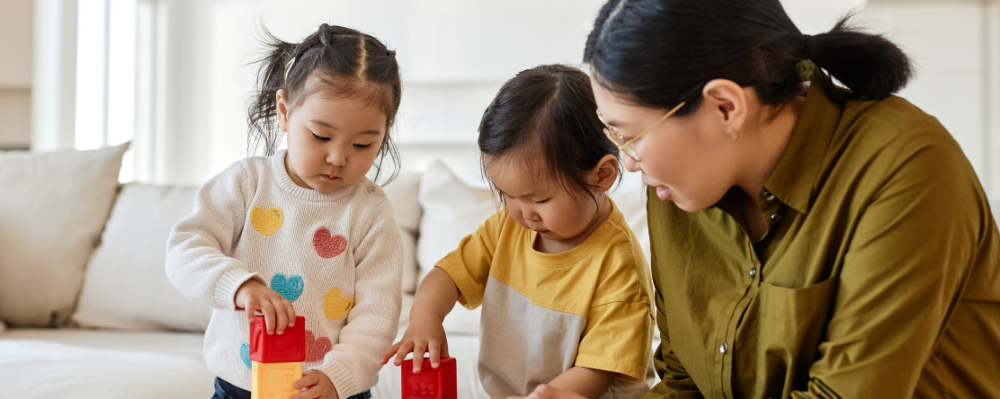
Advancing Trauma-Informed Care for Asian American and Asian Immigrant (AAAI) Children and Families

Asian American and Pacific Islanders (AAPIs) are one of the fastest-growing communities in the Greater Boston area and account for about 10% of the total population. A significant proportion of the AAPI population are first- and second-generation immigrants, who have suffered various types of traumas before and after migration. However, mental health needs among AAAIs have been under-reported and under-treated due to assessment biases, cultural stigma, and a lack of culturally responsive services and systems of care. In addition, Asian Americans in Boston are almost 3 times more likely to live in poverty than their Caucasian counterparts and more likely to live in households with limited English language capacity (e.g., 32% Vietnamese and 30% Chinese families), making it both financially and linguistically difficult for them to access quality care.
This workshop from PHI’s Lotus Project invited mental health service providers, researchers, community-based organizations and AAAI community members to discuss trends and insights for trauma-informed care and prevention for AAAIs in the Greater Boston area. Building on the Lotus Project’s past experience of hosting workshops on trauma-informed care for AAAI children and families (e.g., Afghan communities in Sacramento, AAAI communities in the San Francisco Bay area and metropolitan Washington DC area and AANHPI communities in Honolulu), they centered AAAI children and women to address age-specific mental health challenges among youth and the unique mental health concerns experienced by AAAI women and other subgroups. This workshop also aimed to cultivate collaborations among local AAAI-focused agencies and mental health professionals and to foster advocacy efforts to create more resources and opportunities for trauma-informed care and prevention for this population.
Highlights Video
All photos & videos by Bobby Quillard, IG/FB: @bobbyquillard
Welcome Note
Presented by
Tooru Nemoto, PhD (Public Health Institute – Lotus Project) | Contact: tnemoto@phi.org
Hyeouk Chris Hahm, PhD (Boston University) | Contact: hahm@bu.edu
Pata Suyemoto, PhD (National Asian American Pacific Islander Mental Health Association (NAAPIMHA)) | Contact: pata@naapimha.org
Session 1: Panel Discussion – Reflections of Asian Americans with Lived Experiences on Trauma and Healing
Speaker & Moderator: Pata Suyemoto, PhD
Panelists:
Amy Manion, BA (Tunefoolery Music, Inc.) | Contact: amy_manion@icloud.com
Emily Chen, MS, CF-SLP (Peer Projects; National AAPI Empowerment Network)
Payal Kumar, BA | Contact: payalpkumar@gmail.com
Session 2: Presentations – Trends in Culturally Responsive Care for AAAI Children and Families
Moderator: Dorothy Chin, Ph.D (University of California, Los Angeles) | Contact: dchin@ucla.edu
Speakers:
Christina Shea, MS, LMFT (Richmond Area Multi-Services (RAMS)) | Contact: christinashea@ramsinc.org | Slides
Brian Keum, PhD, MA (University of California, Berkeley) | Contact: briankeum@berkeley.edu | Slides
Catherine Vuky, PhD (William James College) | Slides
Session 3: Panel Discussion – Addressing Trauma-informed Care and Healing Through a Gendered Lens
Speaker & Moderator: Hyeouk Chris Hahm, Ph.D
Panelists:
Aileen Lee, PsyD (Boston University) | Contact: aileenleepsyd@gmail.com
Colleen Nguyen, MPH, DrPHc (Asian Women for Health) | Contact: cnguyen@asianwomenforhealth.org
Dawn Sauma, MSW, LICSW (Asian Task Force Against Domestic Violence) | Contact: dawn@atask.org
Breakout Sessions Debrief & Closing Remarks
Debrief Moderator: Dorothy Chin, Ph.D
Closing Remarks: Angela Tang, MSW, LCSW (RAMS – Lotus Project) | Contact: angelatang@ramsinc.org
Originally published by The Lotus Project
Work With Us
You change the world. We do the rest. Explore fiscal sponsorship at PHI.
Support Us
Together, we can accelerate our response to public health’s most critical issues.
Find Employment
Begin your career at the Public Health Institute.

